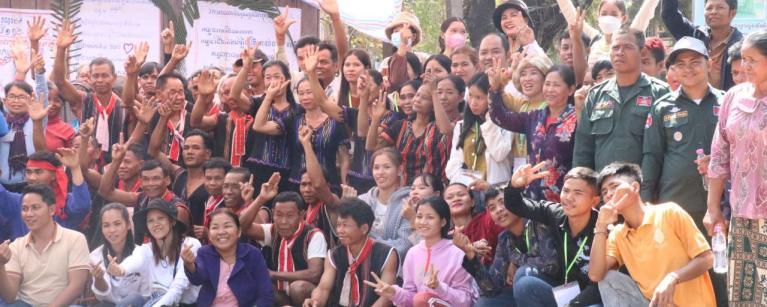Art performances provided a platform for marginalized groups to utilize their creative expression, highlighting the significance of freshwater and promoting solidarity in protecting water as a vital resource.
Through various artistic mediums, such as indigenous traditional dance, music, and storytelling, the performers were able to convey the importance of freshwater on their communities and the environment. By sharing their stories and experiences with the audience, they were able to raise awareness about the need to protect and preserve freshwater resources.
In addition to raising awareness, the performances served as a platform to inspire individuals and communities to take action towards sustainable water resource management, including protecting the river and or preventing the disposal of waste into rivers to keep the river healthy.
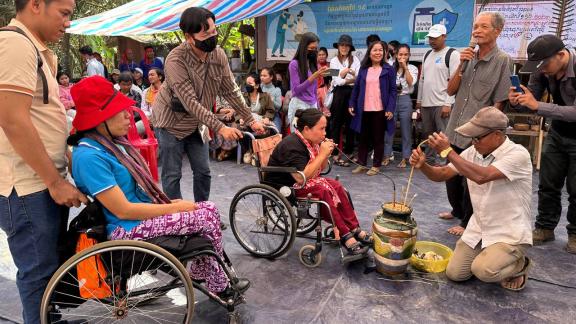
At the event, artists from different communities performed music and dances reflecting both Khmer and indigenous cultures, including Kouy, Tampuan, and Kreung. There were also youth and LGBTQ storytelling and performances and a field visit to riverine communities. Participants came to understand differences in cultures, ideas, and perspectives towards one another.
Puth Afarit, a performer for Men's Health Social Service (MHSS) and a representative of the LGBTQ community said his performance was to tell the people about the importance of the river and everyone’s duty to protect natural resources.
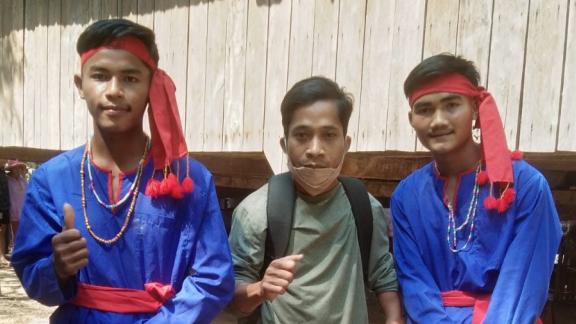
Loun Sokun (middle) from Taveng district, Ratanakiri. Photo supplied.
“If it does not start with us, no one would, the local people are the first role model. The event reminded participants of their duty to protect the environment and promote equality and acceptance for all.”
At the event, artists from different communities performed music and dances reflecting both Khmer and indigenous cultures, including Kouy, Tampuan, and Kreung. There were also youth and LGBTQ storytelling and performances and a field visit to riverine communities. Participants came to understand differences in cultures, ideas, and perspectives towards one another.
Puth Afarit, a performer for Men's Health Social Service (MHSS) and a representative of the LGBTQ community said his performance was to tell the people about the importance of the river and everyone’s duty to protect natural resources.
Afarit emphasized that all people, regardless of their background or identity, share the same right to access water and should work together towards sustainable water management.
“All people have the same rights, whether they have disabilities, are part of the LGBTQ community, or are indigenous. We can all join together, we all use water,” he said.
Afarit's participation in the event also allowed him to gain a deeper understanding of different cultures and the changes occurring within the Mekong River. As someone who has experienced discrimination, Afarit stressed the importance of upholding the same rights for all individuals.
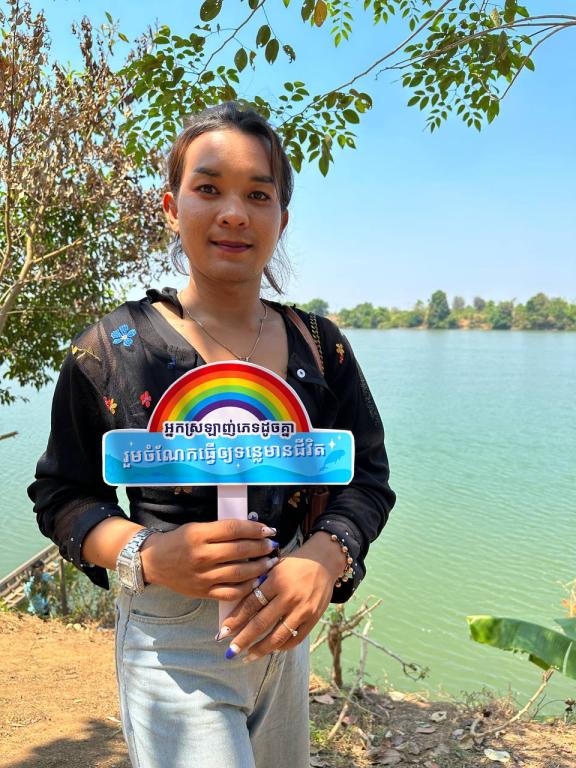
Puth Afarit from Banteay Meanchey province represented for LGBTQ community.
Speaking at the event, Mr. Por Soknak, a representative of Oxfam, said everyone should have a voice to decide what affects the river and their lives.
"The water that gives life to us is important for the communities, clean water for use, and the sustainability of biodiversity systems. Oxfam believes that solidarity and inclusiveness occur when multiple groups work together," he said.
During the event, eight key messages were conveyed, emphasizing the importance of protecting and freely accessing water resources for all individuals, and the role of rivers in protecting human rights, life-giving sources of water, and indigenous communities' social and cultural norms.
The event underscored the need for joint action among stakeholders to ensure environmentally friendly and sustainable water resources development, as water is a basic human right that is crucial for society, the economy, and the environment.
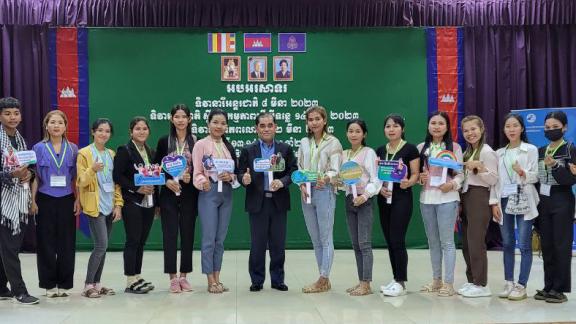
Participants took a picture with Ratanakiri Provincial Governor during the event.
Oxfam believes that inclusion is a key tenet of the sustainable development agenda, ensuring that all individuals have the opportunity to participate and benefit from efforts to protect and manage water resources, leaving no one behind.
Oxfam's Inclusion Project Phase 2 aims to promote inclusive water governance by engaging diverse stakeholders, including riverine communities, civil society organizations, private sector, and government. The project seeks to promote more informed, transparent, and accountable decision-making around Water Resource Governance and Renewable Energy infrastructure in the Lower Mekong and its tributaries.
